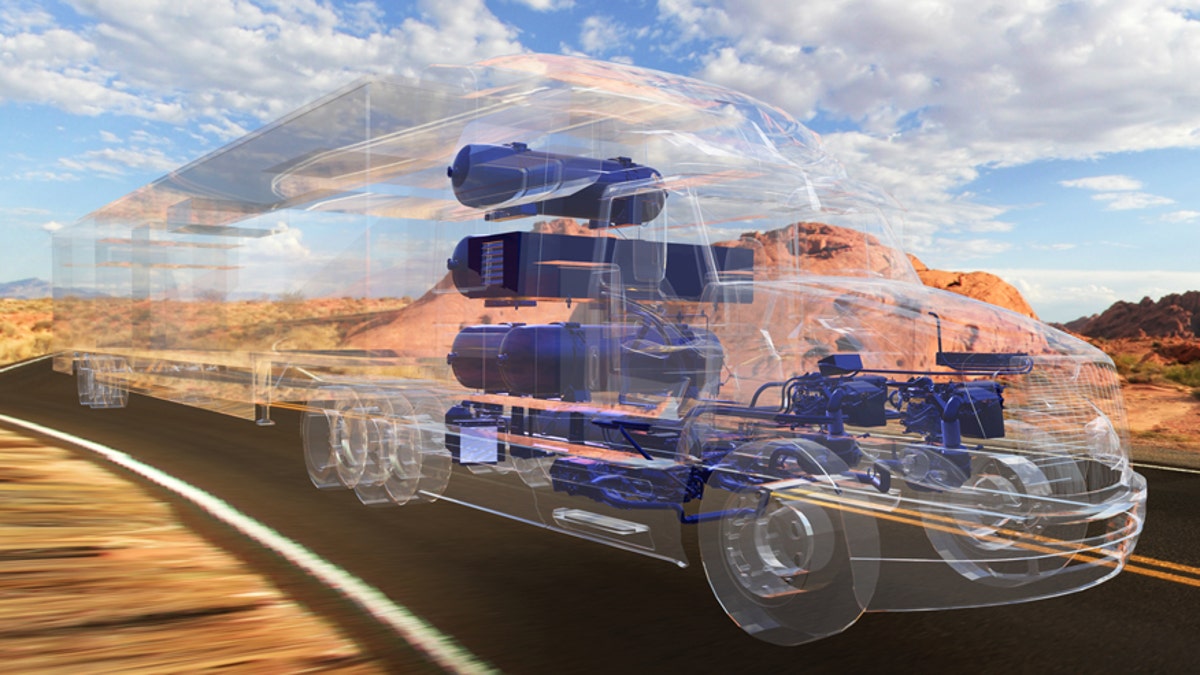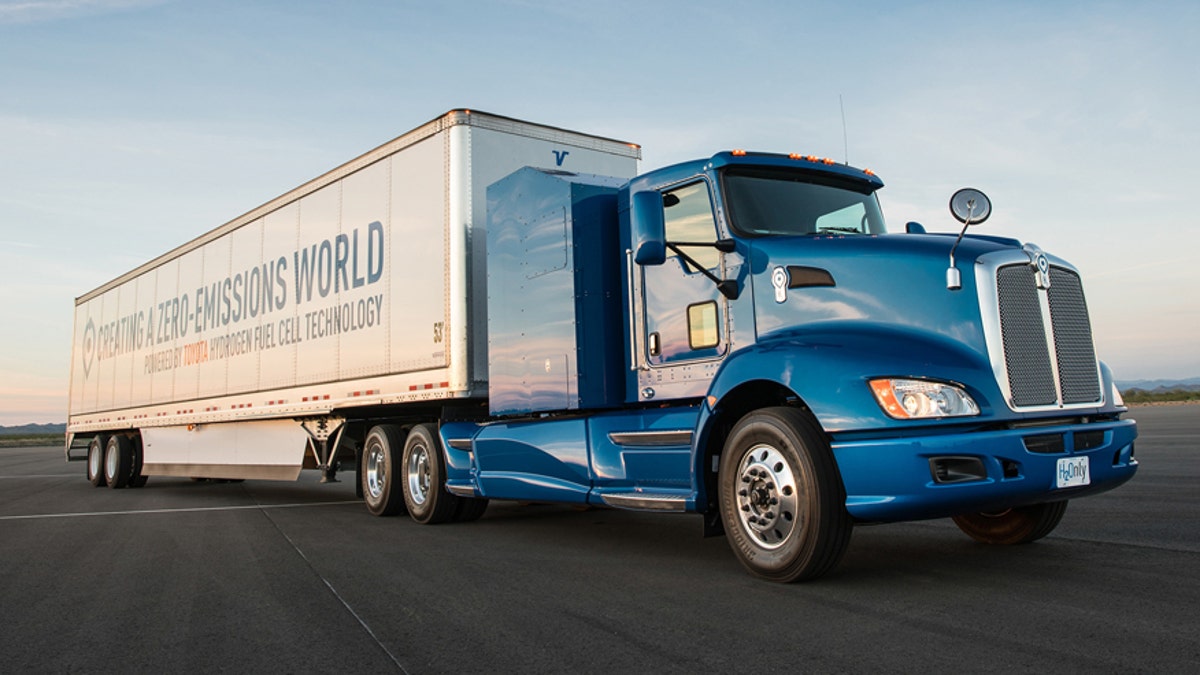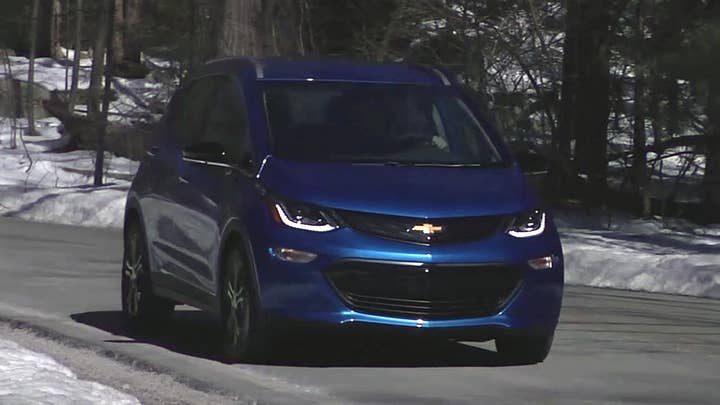
(Toyota)
Toyota is big on hydrogen.
Literally.
The automaker, which currently sells the Mirai hydrogen fuel-cell powered car, is launching a real world evaluation of the non-polluting technology in a Class 8 truck.
The semi will begin testing this summer in Los Angeles, where it will be shuttling shipping containers in, around and between ports of Los Angeles and Long Beach, where 16,000 diesel trucks currently operate, according to Toyota Executive Vice President Bob Carter.
The truck uses two fuel cell stacks from the Mirai, which combine pressurized hydrogen and atmospheric oxygen via catalytic membranes to create water, a process that generates electricity as a byproduct and emits only water vapor.

(Toyota)
The hydrogen is stored it tanks stacked behind the cab, while the fuel cells are installed below it and power twin electric motors with a combined output of 670 horsepower and 1,327 lb-ft of torque, on par with many heavy duty diesel engines. A lithium ion battery with a capacity of 12 kilowatt-hours stores excess electricity generated by the fuel cell and the truck's regenerative braking system that provides an energy boost when needed.
Toyota says the truck can travel over 200 miles per fill up while pulling a full load. It won’t stray too far from the ports, however, as available hydrogen filling stations are few and far between, one of the major hurdles to the technology’s widespread adoption as an alternative to gas, diesel and plug-in electric cars.
Utah-based startup Nikola Motors, which is developing a similar truck meant for long haul operations up to 1,200 miles between fill ups, is addressing the infrastructure issue with a plan to build its own nationwide network of hydrogen stations that reverse the fuel cell process by using solar-powered electrolysis to crack water into hydrogen and oxygen.
Meanwhile, Tesla, who’s CEO Elon Musk has called hydrogen an “incredibly dumb” fuel is working on an all-electric, battery-powered semi that it plans to reveal in September with an eye on production in the coming years.
Toyota converted a Kenworth for the project because its Hino truck division doesn't currently make a Class 8 vehicle, but it could potentially move into the segment or adapt the technology to a lighter duty truck if Toyota decides to commercialize it.
----------
CAN CHEVY BOLT ZAP TESLA?




















